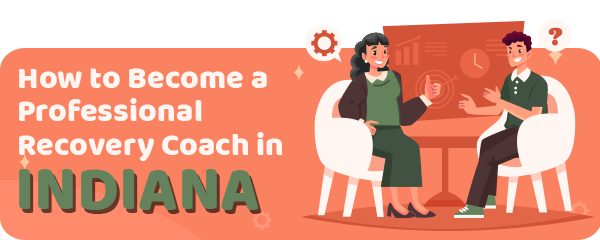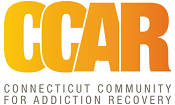Recovery coaches play a vital role in providing invaluable non-clinical support to individuals on their journey to overcoming addiction.
As a recovery coach in Indiana, your objective is to offer guidance and assistance to folks under addiction treatment.
Your responsibility is to motivate and empower patients, equipping them with the necessary tools to overcome substance dependency and achieve long-lasting recovery.
This article explores the field of recovery coaching, so let’s delve into it.
Article Table of Contents
Job Description of a Professional Recovery Coach in Indiana
Recovery coaches do not engage in diagnosing or treating individuals, as their role differs from that of therapists.
Their primary focus is to provide unwavering support and guidance to clients, helping them improve their lives and successfully overcome addiction.
Recovery coaches can work with individuals struggling with various forms of addiction, including substance abuse, alcoholism, food addiction, sex addiction, shopping addiction, or gambling addiction.
Some of the key responsibilities of a recovery coach include:
- Educating clients on essential life skills, such as cooking and cleaning
- Collaborating with clients to establish goals and develop actionable plans
- Conducting regular safety and wellness checks
- Monitoring clients’ progress and holding them accountable
- Facilitating access to additional recovery resources
- Ensuring client confidentiality and adhere to HIPAA guidelines
- Meeting with clients and their families to provide comprehensive support
Steps to Become a Professional Recovery Coach in Indiana
If you aspire to become a recovery coach in Indiana, here are the necessary steps to follow:
1. Obtain a High School Diploma
Having a high school diploma is a fundamental requirement for pursuing this profession.
If you haven’t completed high school you can obtain a GED certificate.
2. Become Certified
In this state, there are programs that teach the needed skills to become a certified recovery coach.
The oversight of Indiana’s peer recovery programs falls under the responsibility of the Indiana Family and Social Services Administration (IFSSA).
IFSSA acknowledges the importance of three key roles in peer recovery support that I’ll briefly present below.
Community Health Worker
These individuals are frontline public health professionals who maintain a close connection with the community they serve.
Certified Recovery Specialist
These are individuals in recovery who can offer peer support in various medical settings, including emergency, outpatient, and inpatient care, as well as situations where an advocate is needed.
Certified Addiction Peer Recovery Coach
These individuals guide peers with mental health and substance abuse disorders through non-clinical recovery activities.
To become a Certified Addiction Peer Recovery Coach in Indiana, residents must complete training and obtain certification through the Indiana Counselor’s Association on Alcohol and Drug Abuse (ICAADA).
3. Be Sober
Some individuals choose to pursue a career as recovery coaches based on their personal journeys of overcoming addiction.
In Indiana, it is essential for these individuals to have a minimum of one year of sobriety.
Even if one has not personally experienced addiction, it is crucial to adhere to the same expectations and guidelines as clients.
Obtaining practical experience is highly valuable in addition to receiving training and obtaining the necessary licensing.
Volunteering at a recovery center serves as the easiest way to gain practical experience.
Furthermore, having two recommendations can further enhance one’s qualifications for a position.
Options for Professional Recovery Coach Training in Indiana
Individuals who have successfully completed 30 hours of required peer training and 16 hours of Peer Recovery Ethics training are eligible for certification.
CCAR Recovery Coach Academy 
The offered training course equips peer coaches with the necessary skills:
- Advocacy,
- Ethical responsibility in their work,
- Mentoring and education training,
- Providing recovery support.
To obtain certification, applicants are required to pass the IC&RC Peer Recovery exam.
Candidates can prepare for the exam by studying the materials listed on the IC&RC website.
NAADAC 
Some people may opt to pursue national certification alongside state certification.
The advantages of obtaining NCPRSS credentials are manifold.
It broadens career opportunities, enhances knowledge of recovery support services, and showcases a strong commitment to high ethical standards within the peer recovery coaching field.
Eligibility requirements for NCPRSS certification are as follows:
- Possess a high school diploma or GED
- Have a minimum of 2 years in recovery
- Completion of at least 200 hours of supervised volunteer or paid recovery coaching activities
- Provide evidence of earning 60 contact and training hours (CEs) within the past six years, with specific requirements:
- 48 hours focused on peer recovery
- 6 hours of ethics training and education.
- 6 hours of education related to HIV and other pathogens
- Commit to upholding the NAADAC/NCC AP Peer Recovery Support Specialist Code of Ethics
- Submit 2 references, including a professional one
- Get a passing score on the NCPRSS exam
| School Name | Address |
|---|---|
| CCAR Recovery Coach Academy | online |
| NAADAC | online |
Salaries for Professional Recovery Coaches in Indiana
It is natural to be curious about potential income prospects in this field even before deciding on a career.
In Indiana, the expected annual income is approximately $33,485.
For those seeking cities where salaries are higher, please refer to the table below.
Annual Salary Range:| Location | Avg. Annual Salary |
|---|---|
| Hammond | $34,321 |
| Gary | $34,321 |
| Indianapolis | $33,410 |
| Greenwood | $33,396 |
| Carmel | $33,369 |
| Lafayette | $33,204 |
| Fishers | $32,808 |
| Elkhat | $32,737 |
| Edinburgh | $32,210 |
| Akron | $32,177 |
Regional Salary in Indiana
| Region | Employed | Avg. Annual Salary | Avg. Hourly Pay | Top 10% Annual Salary | Bottom 10% Annual Salary |
|---|---|---|---|---|---|
| Bloomington, IN | 40 | $52,500 | $25.24 | $81,820 | $31,740 |
| Columbus, IN | 40 | $48,280 | $23.21 | $67,680 | $32,810 |
| Elkhart-Goshen, IN | 40 | $59,500 | $28.61 | $79,090 | $37,250 |
| Evansville, IN-KY | 90 | $44,670 | $21.48 | $79,770 | $23,800 |
| Fort Wayne, IN | 170 | $62,110 | $29.86 | $83,820 | $40,490 |
| Indianapolis-Carmel-Anderson, IN | 690 | $62,110 | $29.86 | $92,170 | $37,080 |
| Lafayette-West Lafayette, IN | 60 | $64,960 | $31.23 | $99,620 | $35,230 |
| South Bend-Mishawaka, IN-MI | 100 | $55,790 | $26.82 | $81,250 | $35,770 |
| Terre Haute, IN | 50 | $62,050 | $29.83 | $83,490 | $31,740 |
* Employment conditions in your area may vary.
Frequently Asked Questions
Which facilities from Indiana hire professional recovery coaches?
A professional recovery coach might work for:
- Hospitals
- Their communities
- Clinics dedicated to those trying to recover
How Promising Are The Employment Opportunities For Professional Recovery Coaches in Indiana?
Employment opportunities for professional recovery coaches in Indiana are very promising because there’s an increased number of folks trying to overcome their addictions.
Will I earn more or less in Indiana than the national median salary?
The median salary for this occupation is around $35,000 per year, while in Indiana the annual median salary is around $33,000.
Read the full guide: How to Become a Professional Recovery Coach


